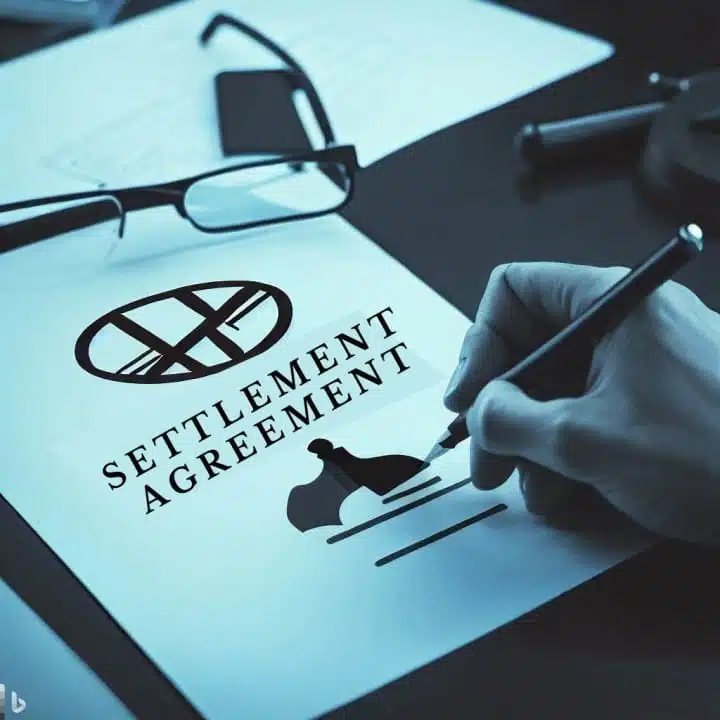How Settlement Agreements Save Time and Legal Costs
Settlement agreements are a powerful tool for resolving disputes efficiently, saving both time and legal costs. They allow parties to avoid lengthy court proceedings while reaching mutually acceptable terms. This article delves into the ways settlement agreements can streamline conflict resolution, reduce expenses, and offer practical solutions with greater transparency and detail.
Avoiding Prolonged Litigation
Litigation can be a time-intensive process, often dragging on for months or even years. Court delays, extensive evidence gathering, and procedural formalities extend the resolution process, consuming valuable resources. Settlement agreements provide a quicker alternative by enabling parties to bypass these delays and work towards an expedited resolution.
Real-World Example
In a commercial dispute involving two large corporations, reaching a settlement allowed both parties to resume business operations without the financial and reputational risks of a drawn-out court case.
Key Insight: A well-negotiated settlement can save months or even years of legal battles, enabling parties to focus on rebuilding relationships or pursuing other priorities.
Lowering Legal Expenses
Court cases often involve substantial legal fees, including attorney costs, filing fees, expert witness expenses, and the potential costs of appeals. Settlement agreements eliminate many of these expenses by resolving disputes outside the courtroom.
Financial Perspective
In employment disputes, for example, settlements often save employers significant legal costs compared to protracted litigation, which might involve severance, back pay, and reputational damage.
Key Benefit: Settlements streamline the financial aspects of dispute resolution, ensuring resources are used more efficiently.
Maintaining Confidentiality
Settlement agreements frequently include confidentiality clauses, ensuring sensitive information remains private. This is particularly valuable in disputes involving trade secrets, intellectual property, or personal reputations.
Practical Application
High-profile cases, such as celebrity divorces or corporate mergers, rely heavily on confidentiality to protect involved parties from public scrutiny or unwanted media coverage.
Key Takeaway: Confidential settlements safeguard reputations and sensitive details, allowing parties to move forward without adverse publicity.
Customizing Solutions
Unlike court judgments, which are typically rigid and standardized, settlement agreements offer the flexibility to create customized solutions that cater to the unique circumstances of the dispute. This can include creative arrangements such as structured payments, performance-based payouts, or future collaborations.
Case Example
In a property dispute, a settlement agreement allowed one party to retain partial ownership while granting the other access rights, a solution that wouldn’t have been possible through a court ruling.
Key Lesson: Flexibility in settlements often leads to win-win outcomes that satisfy both parties.
Preserving Relationships
Litigation is inherently adversarial, often leading to damaged relationships that can be difficult to repair. Settlement agreements promote collaboration, making them especially valuable in disputes involving business partnerships, families, or employment relationships.
Long-Term Impact
A well-negotiated settlement in a family business dispute allowed the involved parties to continue working together, preserving both personal and professional relationships.
Key Insight: Settlements foster goodwill and collaboration, paving the way for future interactions.
Reducing Emotional Stress
The stress of prolonged litigation can take a toll on individuals and organizations alike. The adversarial nature of court cases often exacerbates emotional distress, affecting mental health and productivity.
Emotional Benefits
Settlements provide a less confrontational path to resolution, allowing parties to focus on recovery and rebuilding without the added strain of court appearances or cross-examinations.
Key Benefit: A faster resolution reduces emotional strain, providing peace of mind to all parties involved.
Ensuring Predictability
Court rulings are inherently unpredictable, with outcomes often depending on judicial interpretation, evidence presentation, and legal technicalities. Settlements, however, give both parties control over the terms and conditions, ensuring a predictable resolution.
Risk Management
In intellectual property disputes, parties often prefer settlements to mitigate the risk of unfavorable court judgments, which can result in substantial financial losses or injunctions.
Key Takeaway: Settlements reduce uncertainty, offering a predictable and mutually agreed-upon outcome.
Conclusion
Settlement agreements offer a pragmatic and transparent approach to resolving disputes efficiently. By avoiding prolonged litigation, reducing costs, maintaining confidentiality, and preserving relationships, they provide significant advantages over traditional legal proceedings. Whether you are an individual, a business owner, or part of a larger organization, considering settlement options can save time, reduce stress, and foster better outcomes.
Need Expert Assistance?
At Solidaire Solicitors, we specialize in crafting comprehensive and effective settlement agreements tailored to your needs. Our experts are here to help you save time and minimize legal costs while achieving the best possible outcome. Contact us today to learn more about our services.



